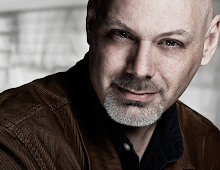I just got finished reading these design notes on Ulthwe Strike Force by Phil Kelly. It's really interesting for me to read it because I've taken so strongly to USF that it will likely be my army of choice for games of 1500 points and up.
Go give it a read.
I like the way that USF is a strict no-tank diet, and takes away most of the Eldar player's heaviest hammers. The interesting thing is that Kelly really stresses the idea of playing out with more power as the turns press on. "After extensive playtesting," he writes "and a rule that kept half of the army in reserve, I was left with a very fast, infantry-based army that has to play carefully on the first few turns, but hits like a ton of bricks when the cavalry arrives." I find it sort of thought-provoking because it seems as though the design of the army is meant to rely on finishing out the game with a heavy webway strike which will be, presumably, deep in enemy territory, overruning them and saving the day. It certainly keeps with the fluff that it would happen like that. Obviously with half the units starting in reserve and later popping out of the Wraithgate then that's the tactic the army seems to beg for.
The thing is that I don't play it much like that. I pull the glove off the iron fist in turn one and try to carve off a thick slice of the enemy's ranks before they can even put their tactics into drive. I have stuff come into the fray later to support and add extra muscle, but my hope is always that the worst damage will have been done by then, and those extra units which arrive in the 11th hour will simply help beat back whatever enemy survives the first two turns. It's almost the opposite of Kelly's maxim that the USF player will play carefully in the first two turns and then the real damage occurs.
Also interesting is that most of the friends I have who have tried playing USF play it Kelly's way, and most of them stop using USF shortly after because they just can't get the hang of it. Now, I'm not dishing on Kelly's design; this is as much a matter of trying to shake off old habits and get into new patterns of thinking as it is a matter of army-specific rules. Yet, I have heard more than once about how people reconsider the idea of playing USF once they see the huge swath of damage that gets laid out early-on in the game by my approach.
If nothing else, it goes to show that USF, despite its rigid rules and long list of handicaps, is not only powerful, but versatile. If Phil Kelly can make the magic happen with his late-in-the-game striking and I can do the same early on by using a different list and different approach to tactics, then USF is broad enough to adapt to several playing styles - even those that fall somewhere between my and Kelly's approach.
Kelly's approach puts his forces on the defensive early on as they find the right place to drop the gate so the cavalry can come. It certainly suits the background story. My own approach puts the Eldar in fortified positions; heavy units and infantry (well, as heavy as USF lets you use) dug deep into cover, intractable and fortified. It seems to diverge from the storyline, as my forces rarely advance into the field before turn 3 at earliest so they're not particularly eager to get the Wraithgate into a forward position (I usually drop it right in my own deployment zone). It's contrary to the spirit of the army. I don't happen to feel any regrets for it, mind you; I see it as my right, not my privilege, to exploit every power the list lends me (especially considering the hard limits which are imposed on no other force in the pantheon of Eldar Craftworlds). It does give me pause, however, to ultimately wonder if I'm getting the most out of my lists. Though I've probably played a good 40 games as USF, I believe that Kelly's playtesting has probably been more exhaustive and more experimental. I wanna know if I could be playing a more dynamic, interesting game by learning some things from what he does.
If anyone knows how to get Kelly's email address, I'd love to hear about it.
9/25/2005
Subscribe to:
Post Comments (Atom)

No comments:
Post a Comment